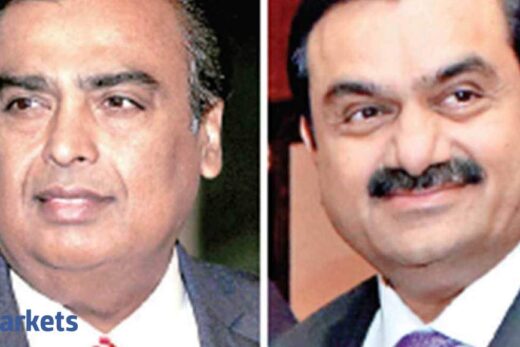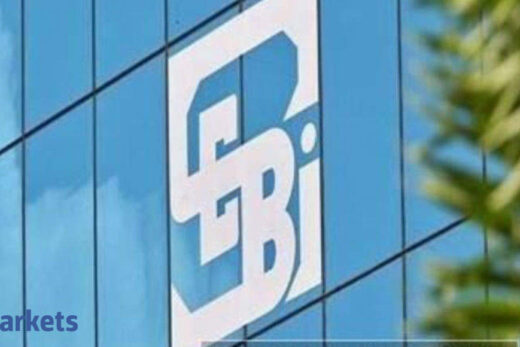Shares of port-to-energy group nosedived last month after reports that accounts of three of the six Mauritius-based funds that have invested most of their money in Adani group firms had been frozen by the national share depository. The three funds owned about USD 6 billion of shares across the conglomerate.
Adani group company shares had continued to fall for almost a week despite the Adani group’s refutal.
“We are inter-generational holders of equity,” Adani, 59, said at the annual shareholder meeting of his group’s listed firms on Monday.
Detailing the philosophy of looking at investments, he said the group is focused on creating long-term sustainable value for partners and minority investors.
Calling reports of freeze “reckless and irresponsible”, he said it caused unexpected fluctuations in the market prices of Adani stocks.
“Unfortunately, some of our small investors were affected by this twisted narrative which seemed to imply that companies have regulatory powers over their shareholders and that companies can compel disclosure,” he said.
Such diversions, he said would not impact the group in the long run.
“We have always been a confident organisation that has taken on challenges that very few would dare or imagine. Every challenge thrown at us only makes us stronger and better prepared,” he said.
Shares of Adani Total Gas Ltd,
, Adani Transmission Ltd, Adani Ports & Special Economic Zone Ltd, Adani Green Energy Ltd and flagship were impacted by the reports.
Adani – a first-generation entrepreneur – lost over USD 10 billion in a week.
The Adani group on June 14 denied the report of the freeze, calling it “blatantly erroneous”. A day later it clarified that three demat accounts of Cresta Fund Ltd, Albula Investment Fund Ltd and APMS Investment Fund Ltd were “suspended for debit”, adding to the confusion over the status of the offshore funds.
Prior to the episode, some of Adani group’s listed stocks had soared more than six-folds in value since the start of 2020.
Speaking of the performance of group firms at the AGM, Adani said the six listed entities stood out as beacons of market leadership, adaptive management and institutional profitability during the turbulent times of pandemic.
“The performance of our listed entities propelled our portfolio to cross 100 billion dollars in market capitalisation in the very first week of this new financial year (starting Apri 2021),” he said. “This valuation milestone is a first for a first-generation Indian company.”
The valuations, he said, are simply an outcome of the path charted ahead.
“What we built yesterday has allowed us to secure our today – and what we are building today is the foundation for a better tomorrow,” he said. “Our growth journey is just starting, and this is manifested in the performance of all six of our listed entities that produced results significantly above the market indexes.”
For the financial year ended March 31, 2021, the consolidated EBITDA (or earnings before interest, taxes, depreciation and amortization) for the listed portfolio was over Rs 32,000 crore, registering a year-on-year growth of 22 per cent.
All Adani stocks generated returns of over 100 per cent. “Our businesses ensured that we returned close to Rs 9,500 crore to you, our equity shareholders. This is a 166 per cent increase in profit after tax on a year-on-year basis,” he said.
Adani said APSEZ continued to transform itself from a ports company into an integrated ports and logistics firm. With ports on both east and west coast, APSEZ continued to diversify further, with LNG and LPG business in Mundra added to the portfolio and LNG operations being added in Dhamra.
“No other company in the world runs a port business of such scale and reach,” he said.
The renewable energy firm, Adani Green Energy became the largest solar company in the world in 2000. And last month, following the acquisition of SB Energy’s 5-gigawatt portfolio, it reached the target of 25 GW a full four years ahead of schedule.
Through Adani Enterprises, the group is moving into airports.
The company took over operations of airports in Ahmedabad, Lucknow and Mangalore, signed concession agreements for Guwahati, Jaipur and Thiruvananthapuram, and is now in the process of acquiring the Mumbai and Navi Mumbai International Airports.
In addition to developing a pan-India airport network, “we are also increasing our focus to include non-passenger revenue and nurturing a range of possibilities within both – the physical and digital infrastructure,” he said.
Adani said the real phase of accelerated growth is just beginning as the group has a portfolio of companies with several strategic adjacencies that will fuel future growth in a diverse range of sectors.
“Whatever businesses we are now in – seaports, airports, logistics, natural resources, thermal and renewable power generation, transmission, distribution, data centres, defence, agri and food, real estate, city gas utilities, and several others – I believe all of them are individually high growth businesses but, even more importantly, every one of them has adjacencies within themselves as well as new sectors we can move into,” he said.



